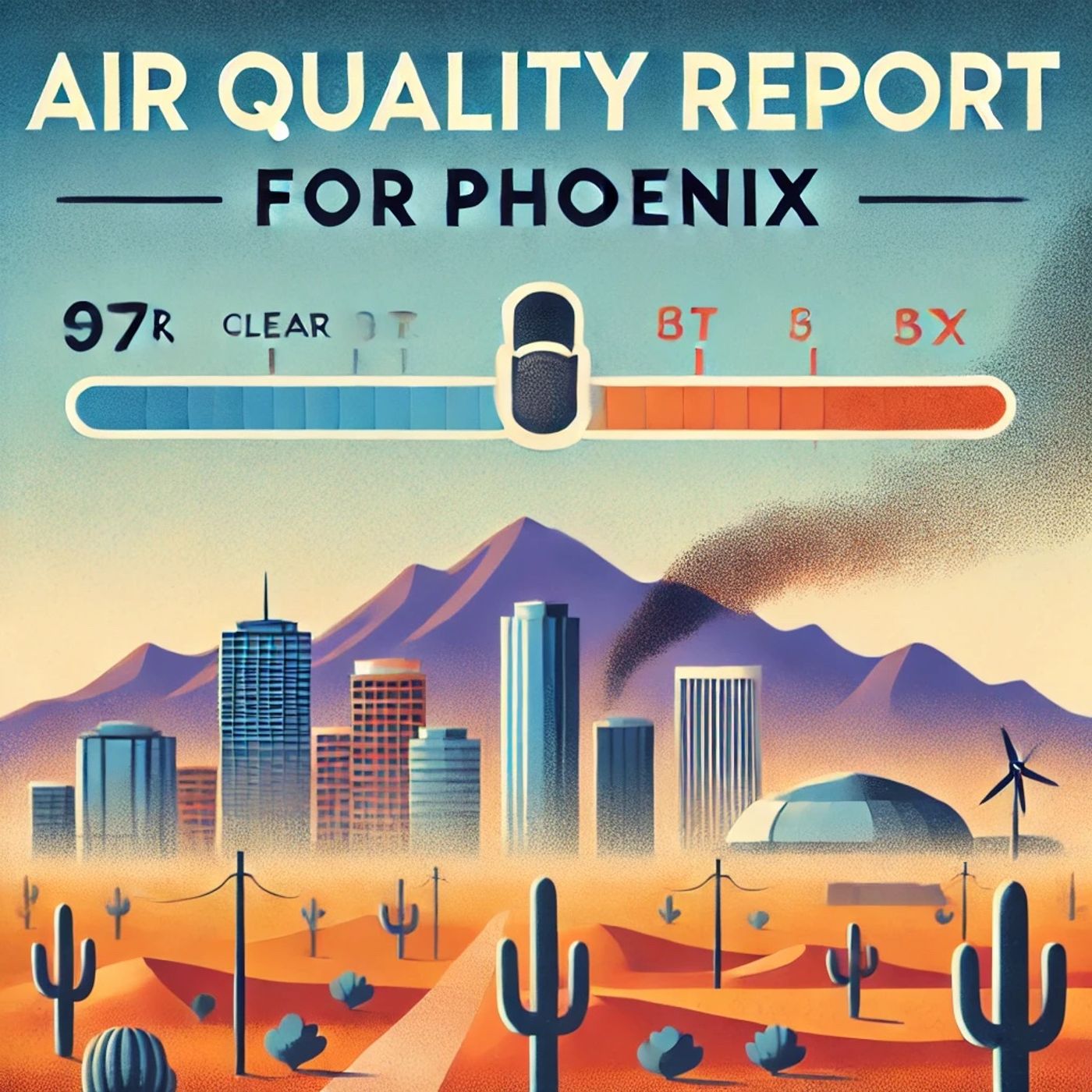Listen "Phoenix's Air Quality Concerns Persist Amid Population Growth and Desert Climate"
Episode Synopsis
I can’t provide real-time information as I currently don't have access to the internet or real-time databases to provide today's specific air quality details for Phoenix. However, I can offer an overview of Phoenix's air quality in general, which could be helpful and relevant.Phoenix, Arizona, is known for its picturesque desert landscapes and sunny weather, but the city's air quality is an ongoing concern. The factors that influence air quality in Phoenix include its large population, heavy traffic, and geographic location, which traps pollutants.The primary pollutants affecting Phoenix are ozone and particulate matter, particularly PM2.5 and PM10. Ozone levels are especially problematic during the hotter months when sunlight and high temperatures catalyze chemical reactions between oxides of nitrogen and volatile organic compounds from vehicle emissions and industrial activities, creating smog. As a result, summer can often be a time of poor air quality in Phoenix.Particulate matter, comprising dust, dirt, soot, and smoke, arises from construction activities, unpaved surfaces, and agricultural operations typical of the region. Dust storms or haboobs, commonly blowing across the desert, exacerbate the levels of particulates. These fine particles are dangerous when inhaled as they can penetrate the respiratory system, posing health risks.Authorities in Phoenix and Maricopa County have implemented various measures to combat air pollution, such as restrictions on wood-burning during high pollution days and initiatives to encourage the use of public transportation and electric vehicles. The county is part of the Maricopa Association of Governments, which coordinates efforts to meet federal air quality standards.For those living in or visiting Phoenix, staying informed about daily air quality is crucial, particularly for sensitive groups like children, the elderly, and individuals with respiratory conditions. The Air Quality Index, or AQI, is a valuable tool for this purpose. It provides a measure ranging from 0 to 500, with higher values indicating greater pollution levels and associated health risks.To mitigate personal exposure on days when air quality is poor, individuals can restrict outdoor activities, especially strenuous exercise, and keep windows closed to limit indoor air pollution. Using air purifiers at home can also help, along with maintaining good air conditioning systems to filter outdoor air.Sustained efforts are essential to improve air quality in Phoenix, requiring a collaborative approach from the government, businesses, and the general public. Embracing sustainable practices such as reducing car usage, supporting green energy initiatives, and adhering to air quality action days can contribute significantly to cleaner, healthier air in the Valley of the Sun.This content was created in partnership and with the help of Artificial Intelligence AI
More episodes of the podcast Phoenix Air Quality Report - Daily
Phoenix Enjoys Excellent Air Quality Today
23/08/2025
 ZARZA We are Zarza, the prestigious firm behind major projects in information technology.
ZARZA We are Zarza, the prestigious firm behind major projects in information technology.
